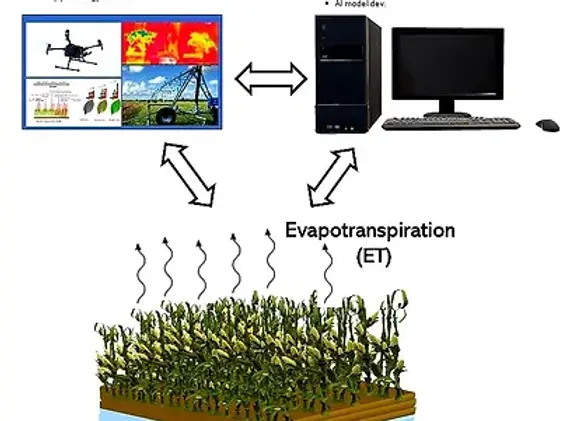PROJECTS

Climate Change Adaptation: Developing Climate Smart Soil and Water Management Practices

Climate change is projected to significantly impact global food production and security. It is exacerbating the vicious cycle of agricultural drought, and famine in most places, especially with rainfed agricultural systems. However, in such places, there is a lack of understanding of how climate change affects production and identify realistic and effective management practices that can be easily implemented at the field scale as climate change adaptation strategies. Our group has been conducting research to understand climate change impacts on crop production and food security and investigate the potentials of water, soil, and crop management practices as climate change adaptation strategies.
Optimizing Phosphorus Management for Snap Bean Production on Calcareous Soil of South Florida

Snap beans play a significant role in the U.S. vegetable industry, particularly in Southern Florida, a leading producer. However, the region's calcareous soil poses challenges, limiting plant access to essential nutrients like Phosphorus (P). Additionally, P fertilizer misuse can contribute to environmental concerns, acting as a non-point source of pollution through runoff and leaching. Excessive irrigation exacerbates nutrient leaching, impacting water resources. Achieving sustainable crop production demands the adoption of Best Management Practices (BMPs) that are resource-conservative, economically viable, and environmentally friendly. Our group is actively involved in developing BMPs for snap bean production on calcareous soils in South Florida. The project aims to optimize P application rates and optimize irrigation management. Anticipated outcomes include reduced groundwater pumping, energy savings, and the promotion of sustainable freshwater resource utilization, potentially minimizing nutrient leaching.
Developing Data-Driven Precision Irrigation Decision Support Tools: Integrating Ground Measurements, UAVs, and Modeling for Evapotranspiration Estimation

Our group is excited to announce our recent 4-year USDA/NIFA grant, focusing on developing innovative measurement techniques for estimating actual evapotranspiration rates in sweet corn and green beans fields. This project aims to develop data-driven water management decision support tools with a focus on estimating field-scale evapotranspiration by integrating data from ground measurements, UAVs, and advanced modeling techniques. Collaborating with a multidisciplinary team of scientists from UF and USGS, the project aims to revolutionize our understanding of evapotranspiration processes. The anticipated findings will pave the way for effective strategies in implementing precision irrigation management practices. Beyond conserving freshwater resources and enhancing crop productivity, our goal is to improve water quality and ensure environmental sustainability.
Flooding and Saltwater Intrusion: Exploring Salinity Risks to Soils, Water, and Environment
.png)
Our group secured a 4-year grant from USDA/NIFA to delve into the intricate impacts of soil salinity stemming from saltwater intrusion and flooding. Our research spans soil hydrology, bio-physicochemical properties, greenhouse gas emissions, and nutrient leaching in agricultural soils. The project aims to unravel the complex impacts of salinity and saltwater intrusion by employing an integrated approach involving column studies, landscape monitoring, and advanced modeling. Additionally, our project evaluates various soil management strategies to mitigate these negative effects, including the application of engineered biochar, salt-repelling hydrogel, gypsum, and organic mulch.
Precision Water Management: UAVs for Monitoring Crop Water Stress
.png)
PI Bayabil was awarded the Early Career Scientist Seed Grant Award from UF/IFAS. This project aims to imporve irrigation scheduling by developing methodologies based on crop water stress levels, using drones equipped with thermal and multispectral sensors. The specific objectives include quantifying the impact of irrigation scheduling methods and variable-rate irrigation on the water use efficiency of sweet corn, modeling sweet corn yield under various irrigation scenarios, and evaluating the applicability of UAVs for irrigation scheduling based on crop water stress levels.